With 169 officially recognized sites, 16th President Abraham Lincoln is the most memorialized person in the US. The Lincoln Boyhood Memorial clearly illustrates the challenges of his pioneer upbringing from age 7-21 that forged him into the amazing leader our country needed in its most difficult time.
Why did the Lincolns wind up here?
When Abraham Lincoln was 7, his father moved the family over 100 miles northwest from Abe’s birthplace in Kentucky to this site. Apparently, Kentucky hadn’t been surveyed well during its settling and Thomas Lincoln had trouble securing documentation of land ownership on his many farms.
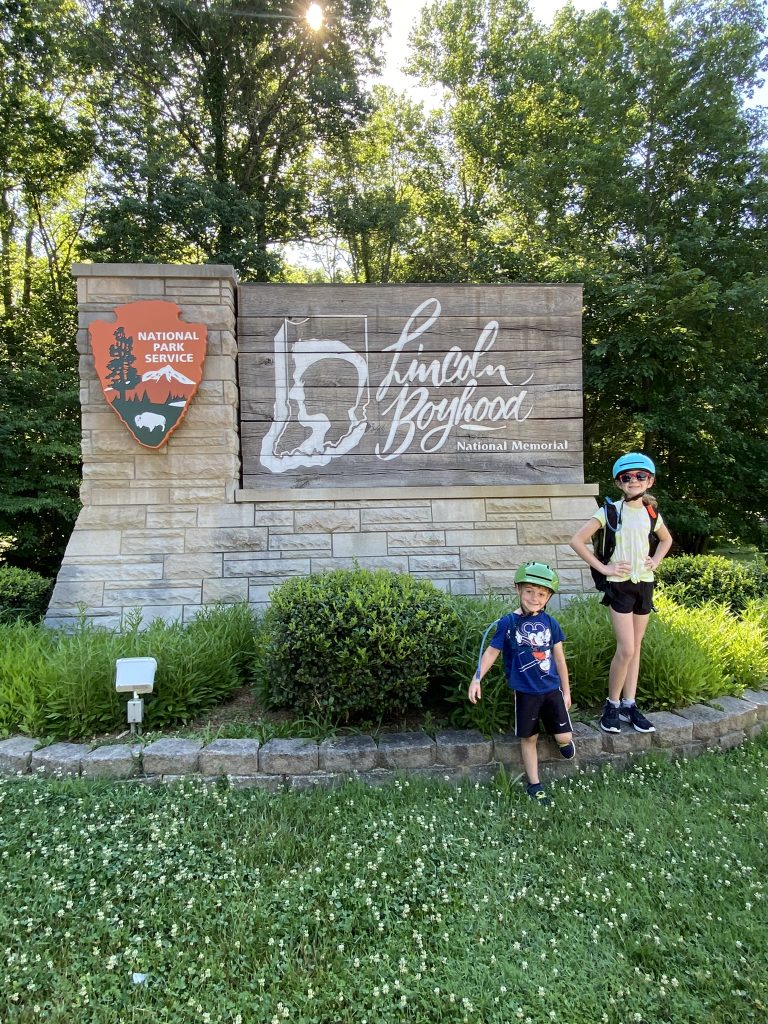
Once across the Ohio river, the Indiana territory was “unbroken wilderness” and the family had to forge a path for their single wagon of belongings to this site. The current day forest here is still exceptionally think and we reflected on how challenging it would be to push through. Abe’s father taught him to swing a double-bladed axe and he was felling trees to clear the path and homesite while in single digits!
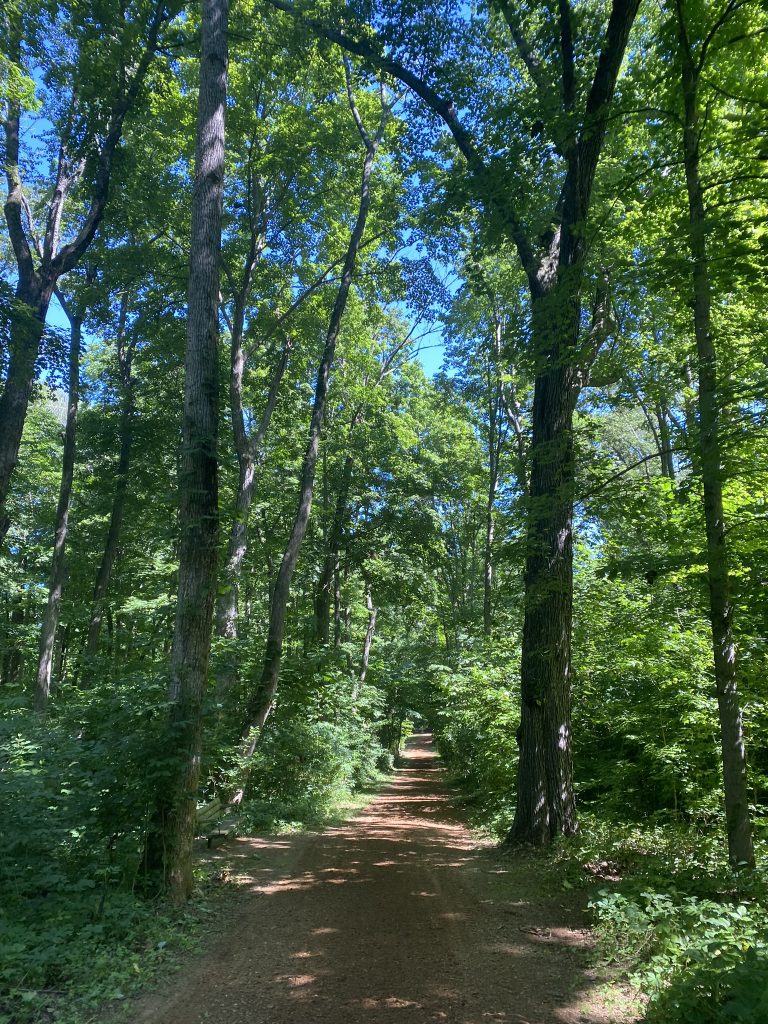
Explore the Memorial Visitor’s Center
Reliefs on the visitor’s center were a great way to introduce the kids to Lincoln as they depict the 5 key phases in his life: early childhood in Kentucky, boyhood here in Indiana, adulthood in Illinois, presidency in DC and his legacy. Built during the 1940’s, the visitor’s center contains a small museum of displays, chapel and gift shop. The kids were surprisingly captivated by the video suggested by park ranger to help complete their Junior Ranger workbooks.
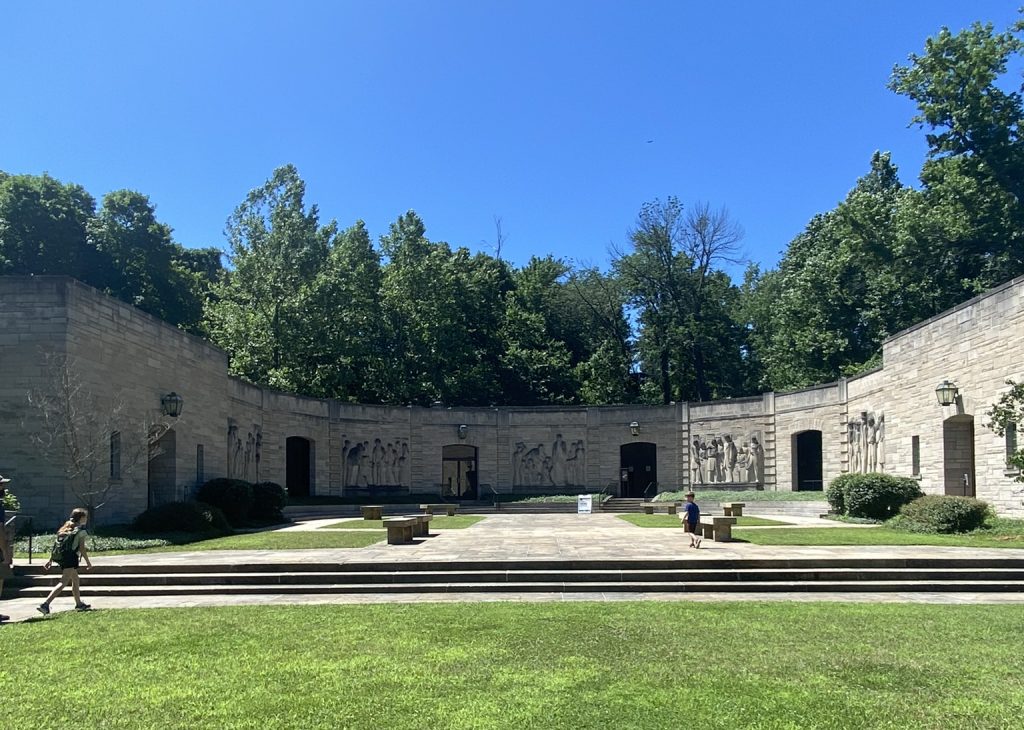
Stroll the family farm
While unpaved, the Boyhood trail easily guided us to the area where Lincoln’s family grew crops. The farm implements displayed helped us describe how labor-intensive farming was for their family in the 1820’s before tractors. Large and strong for his age, it’s said Abe was good with the plow. Although not happening the day we visited, people dressed in period attire regularly tend to the fields and animals at the site.
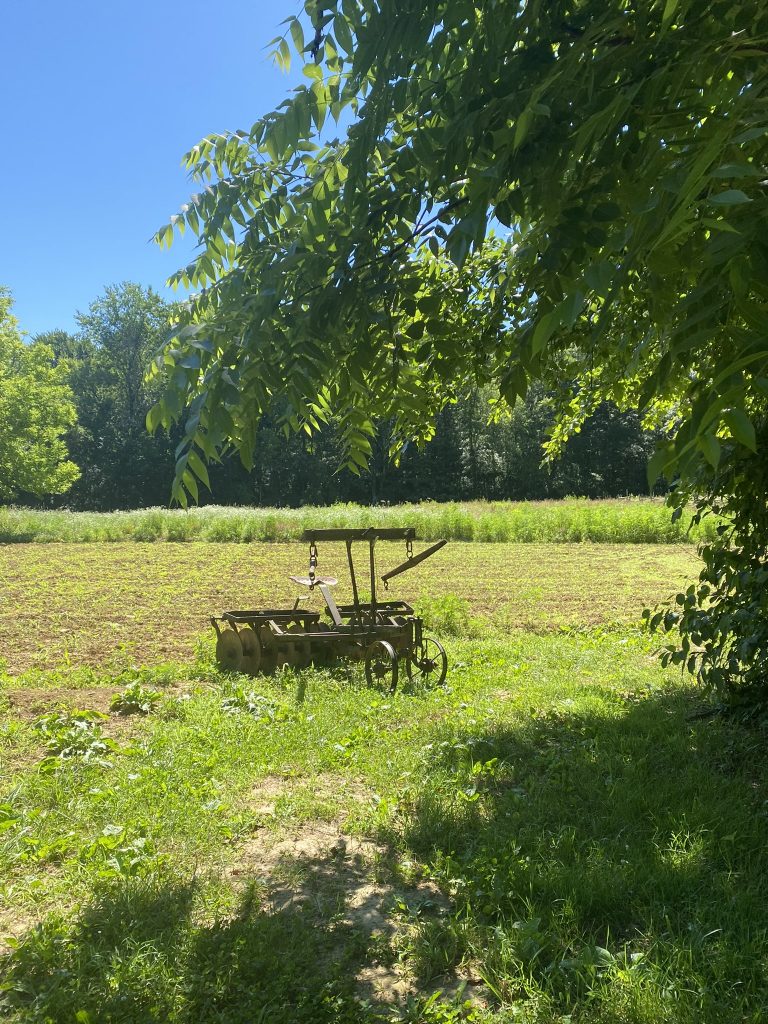
View the family cabin site
Located in 1917 and excavated in 1933, the bronze cast of the Lincoln family cabin’s foundation was completed in 1935. I’m not entirely sure why, but we found it to be somber in its simplicity. It’s easy to see how growing up in this site instilled a sense of hard work and perseverance into a young Lincoln.
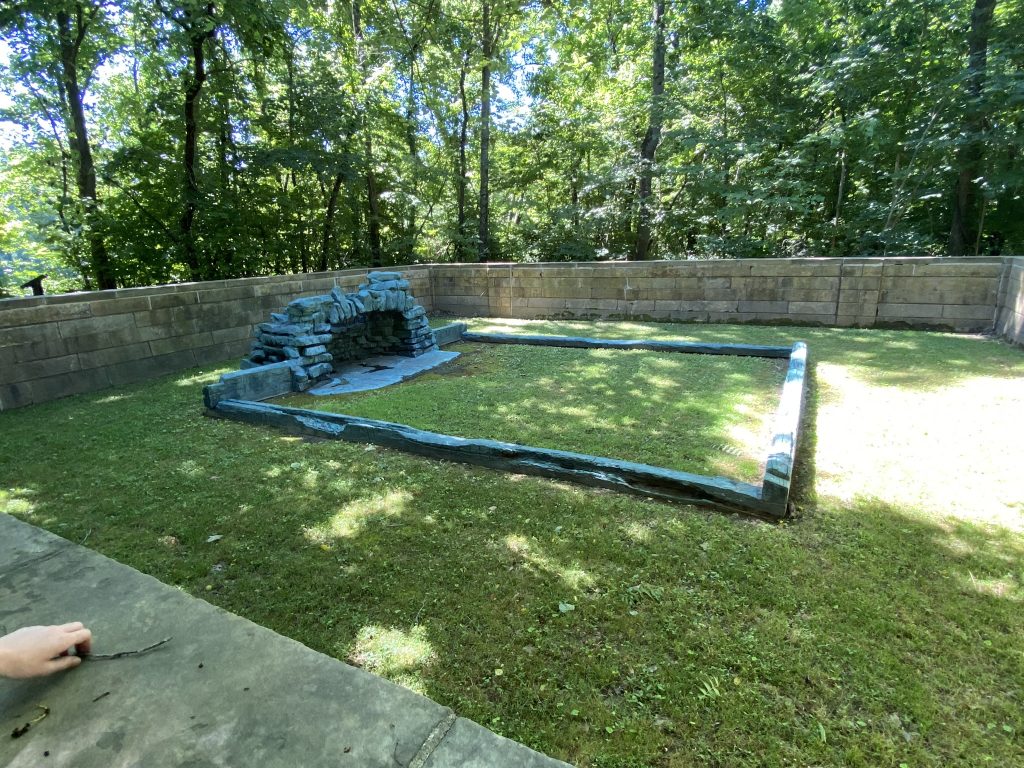
Wander the Living Historical Farm
The living historical farm was the first of many on our Summer 2022 Road Trip. We marveled at the pre-industrial construction techniques that required few if any nails in the buildings and fences. The kids, in contrast, were more impressed with the chickens and cows that legitimize the site as a farm.
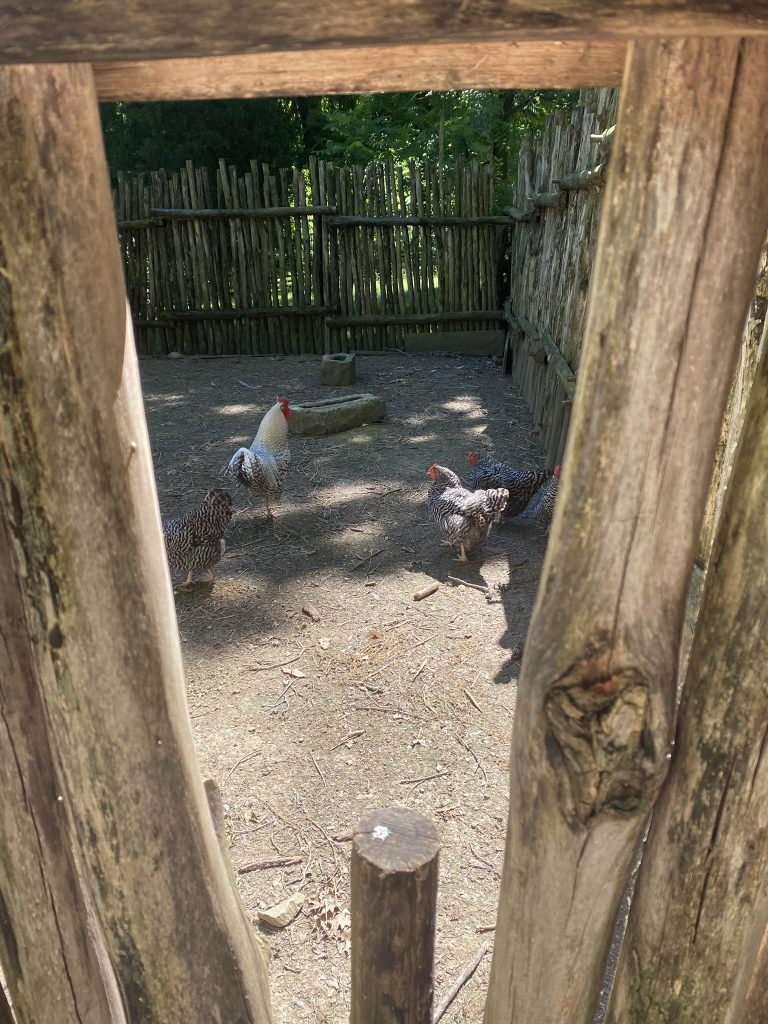
Count all Twelve Stones
We returned to the visitor’s center playing find the rock on the Trail of Twelve stones. Each is from a location of importance in Lincoln’s life including the White House, Gettysburg, old Capitol building and Mary Todd’s family home. We only found 11, so we’re not sure if we missed one or they miscounted;)
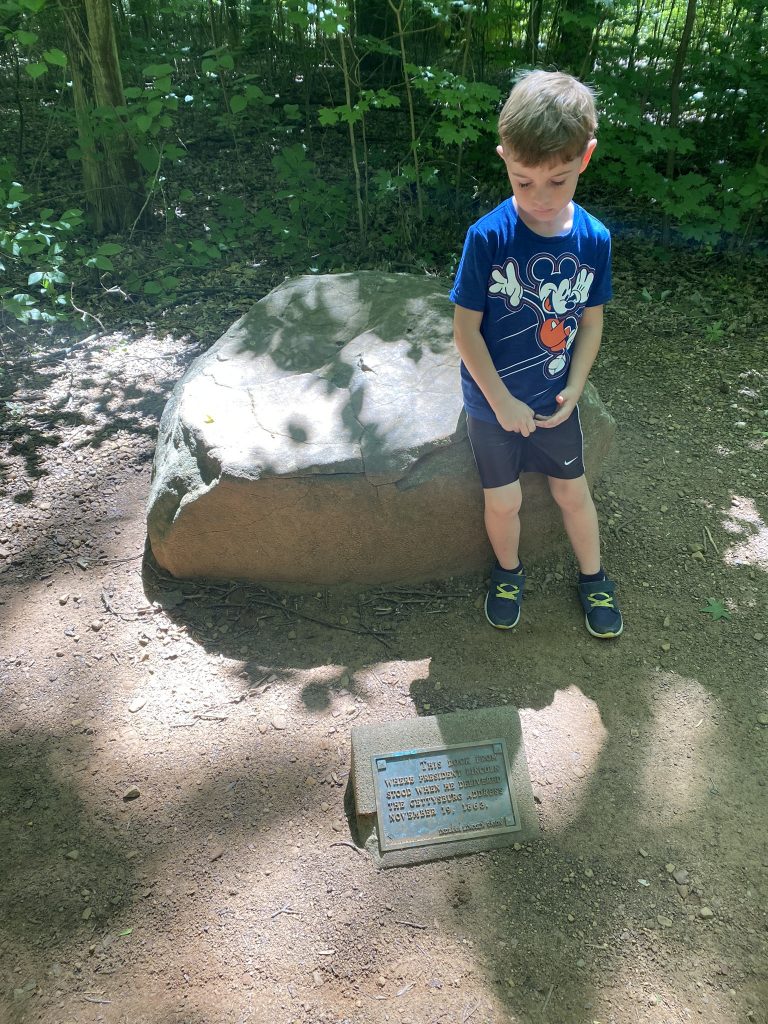
Pay respects to Lincoln’s mother
Two years after completing the arduous move to this site, Lincoln’s mother developed an intense fever and vomiting. She passed a few days later from a disease that would come to be known as “milk sickness”. The disease was responsible for over 50% of the deaths in this newly settled area, but no one could put their finger on the cause. Imagine how scary it would be for family and friends to start dying and have no idea why?!
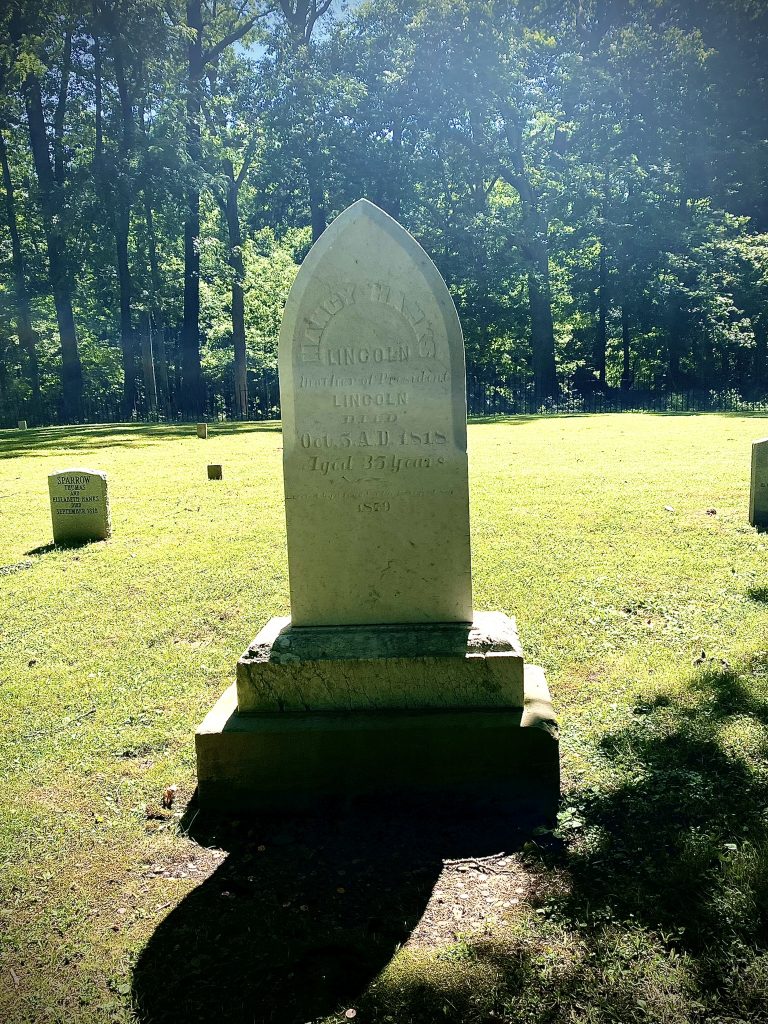
It was later discovered that when cattle ingest the White Snakeroot plant, a chemical called tremetol is transferred into the milk. The native plant to the region doesn’t actually taste great to the cows either, they only consume it as a last resort while free ranging. Once discovered as the cause, farmers stopped allowing milk cows to free range and regularly inspected shady areas for the petulant plant.
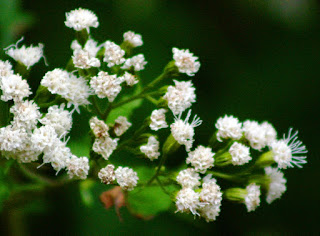
Final Intel
There is ample parking and RV spots available, but it was an easy bike ride from the Lincoln State Park campground. We were hoping to use the bikes to expedite our time here, but they are only allowed on paved roads and not the more interesting trails we wanted to take.
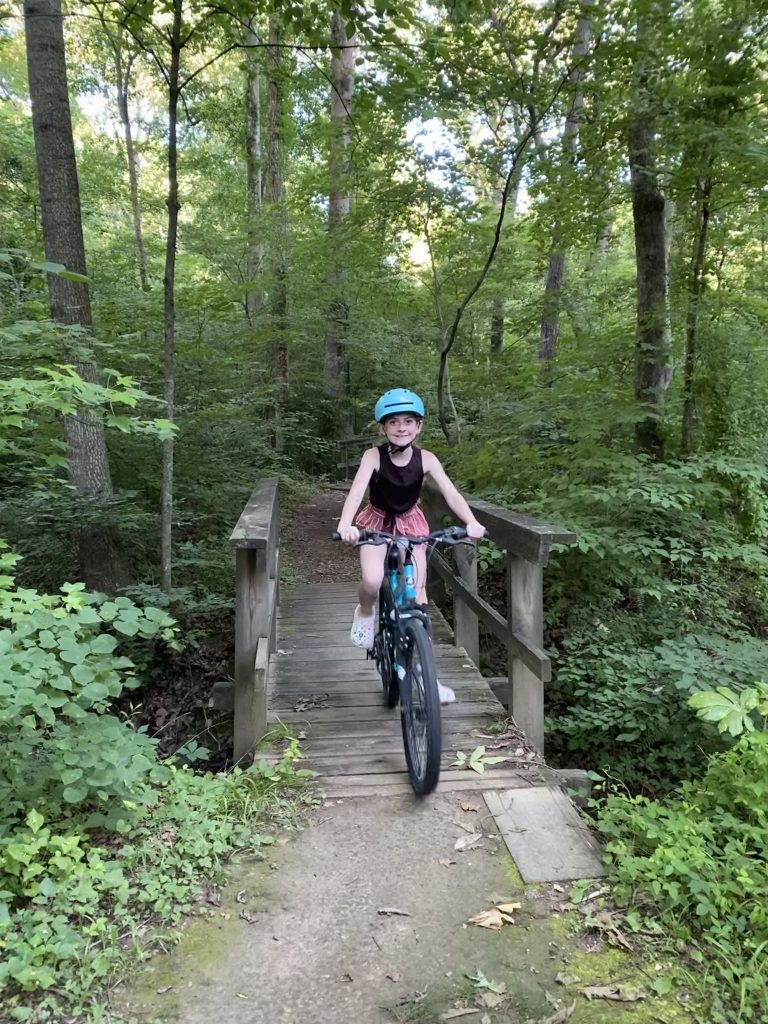
There’s no restaurant and restrooms are only available at the visitor’s center. As always, the rangers are super knowledgeable and happy to help the kids complete their Junior Ranger books and stamp passports. This stop engrained Lincoln as our 5-year-old’s favorite president, and he loved finding him as we traveled throughout the eastern US.
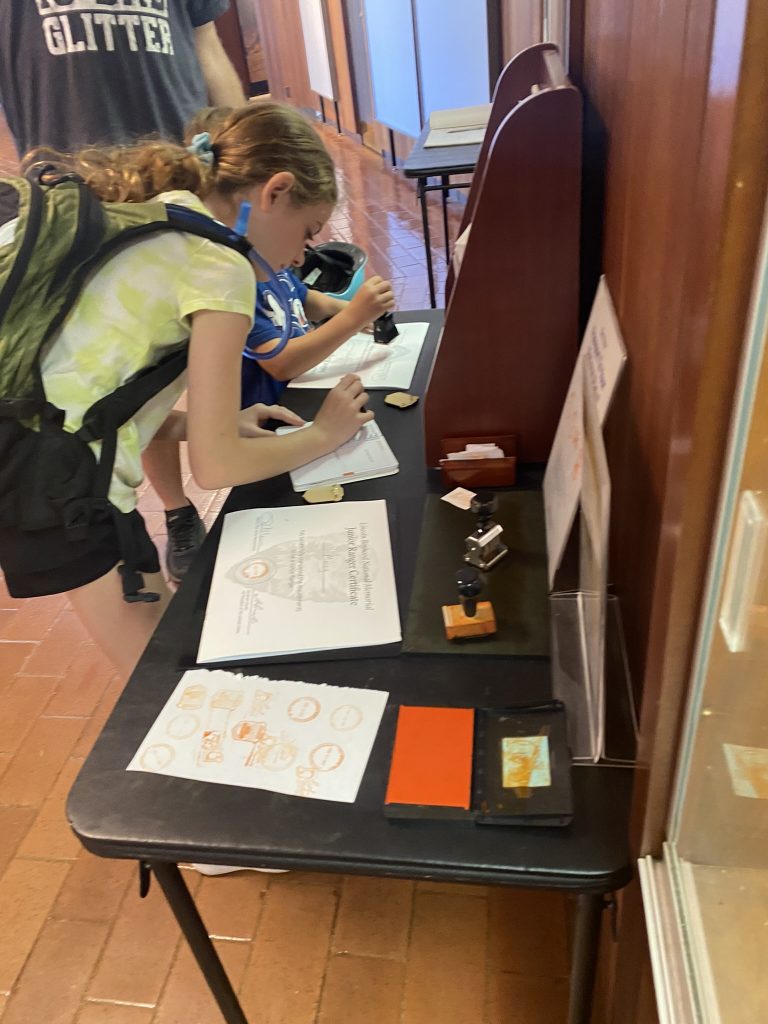


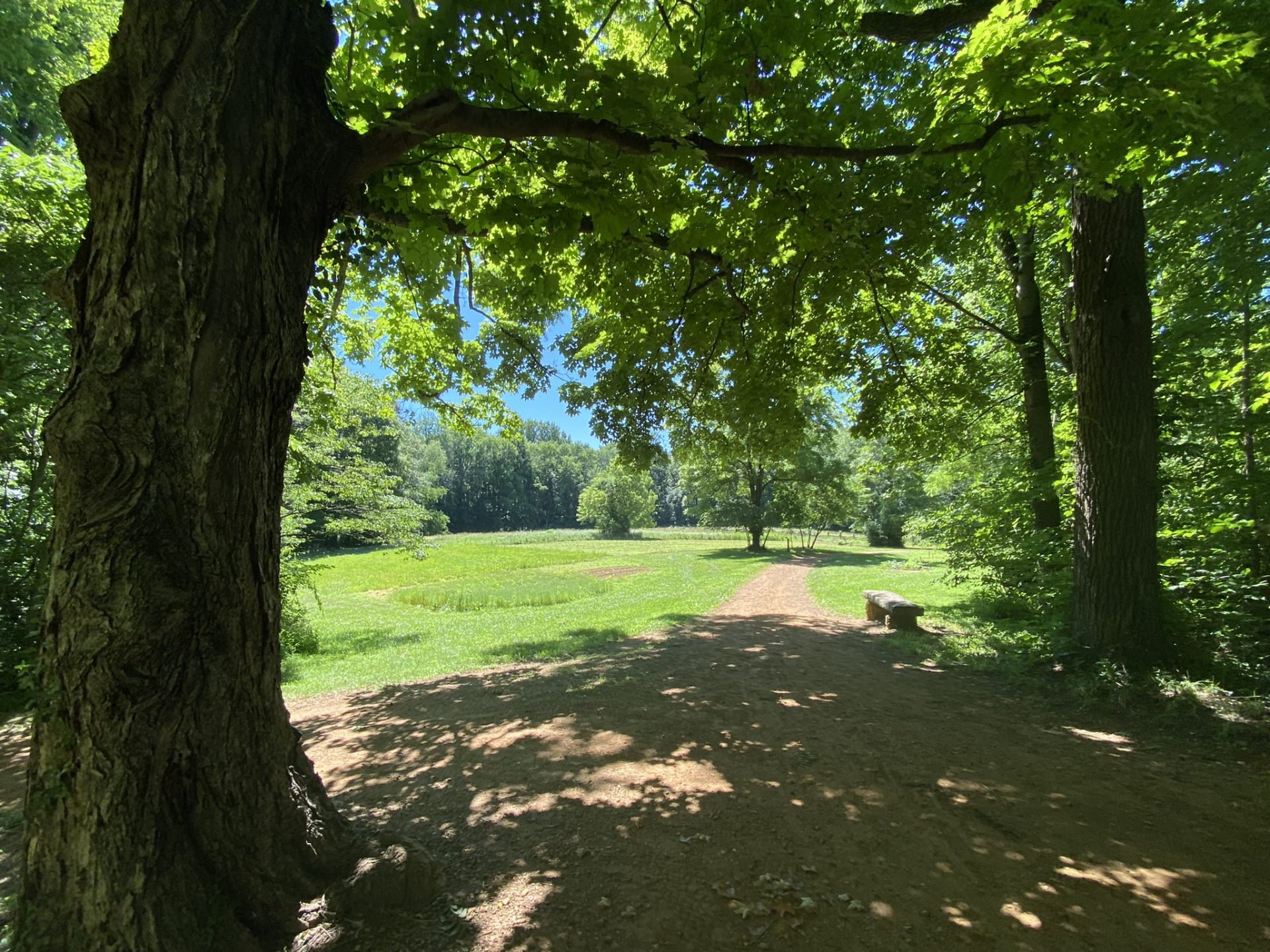
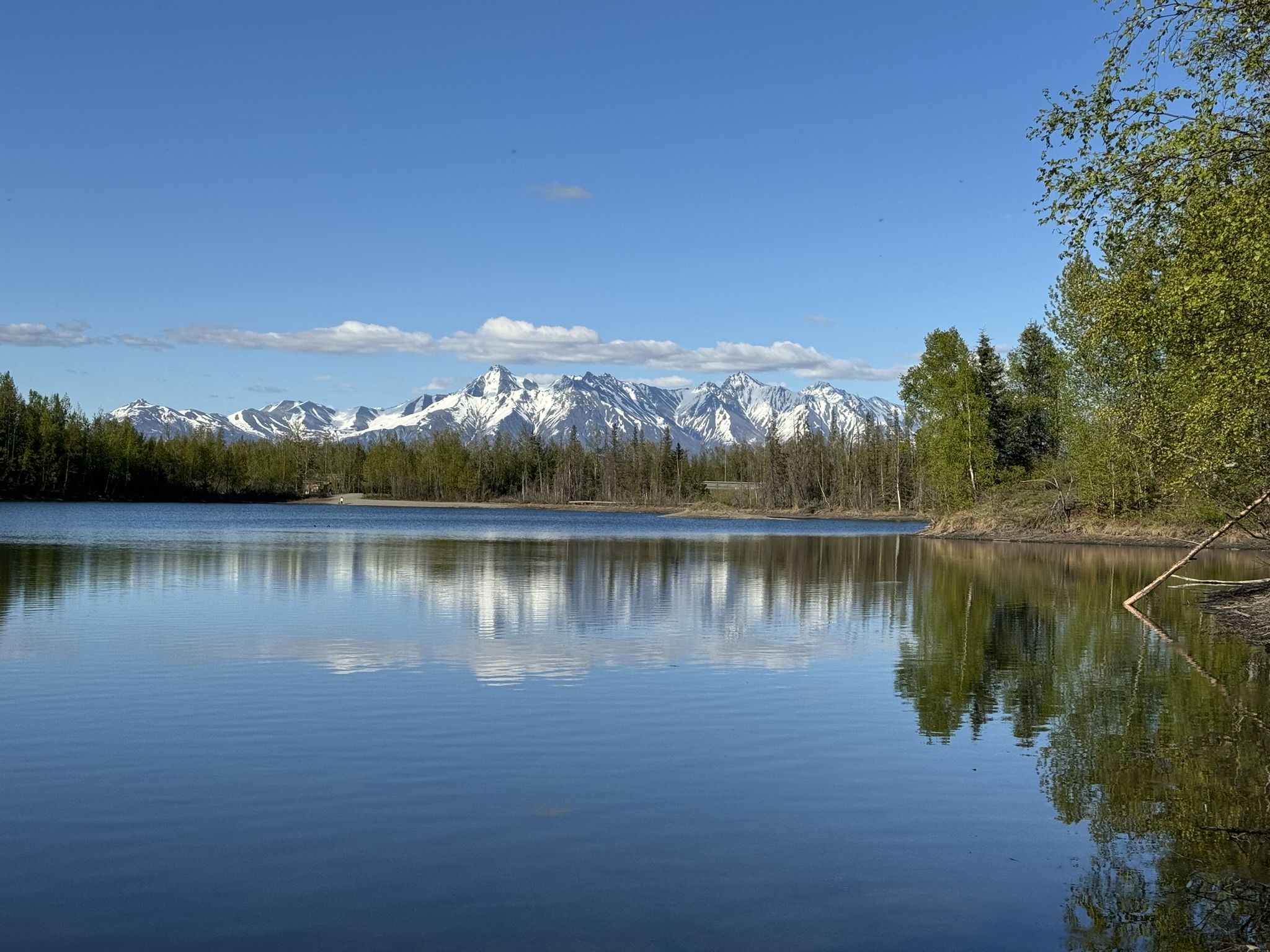
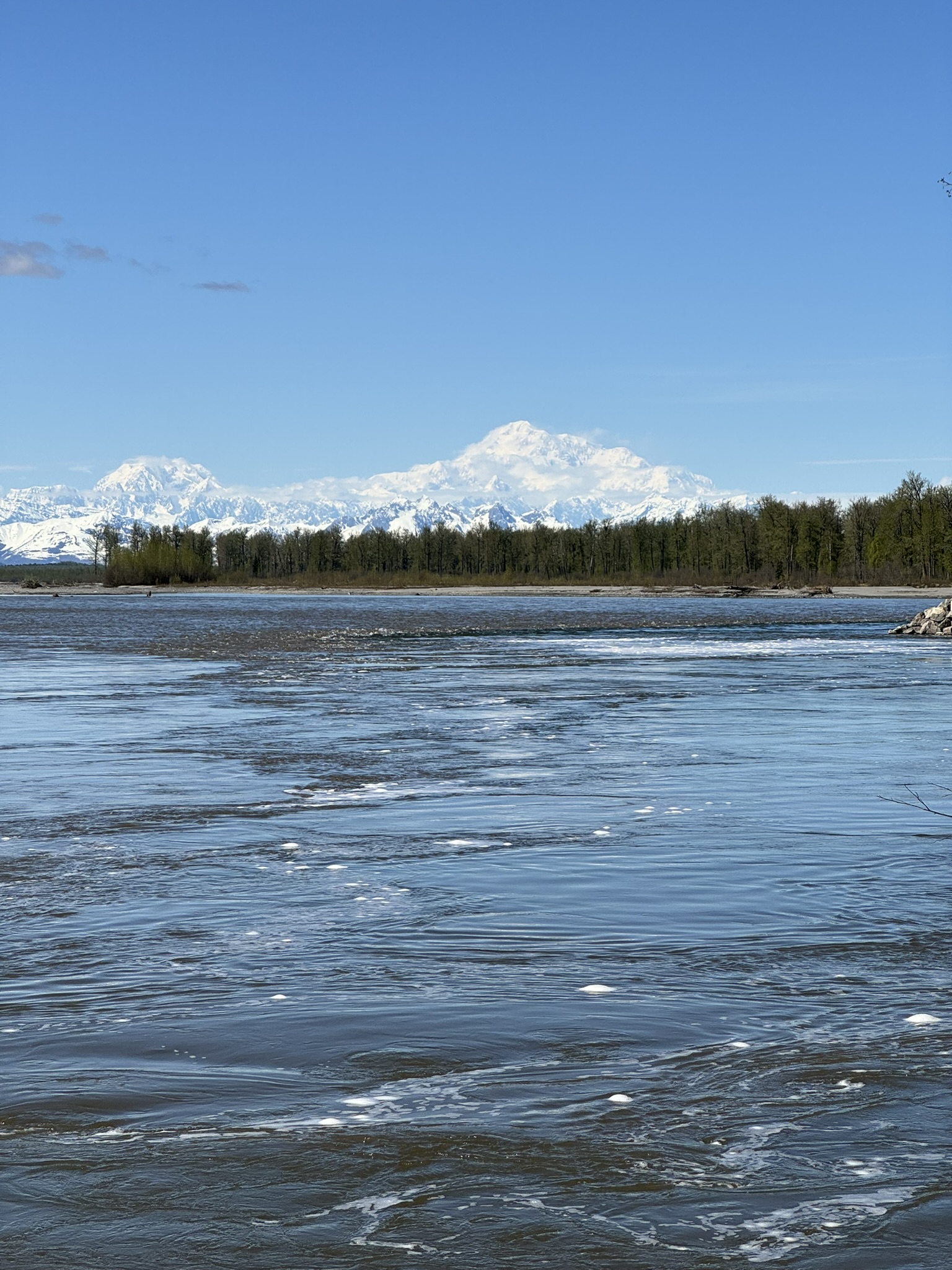
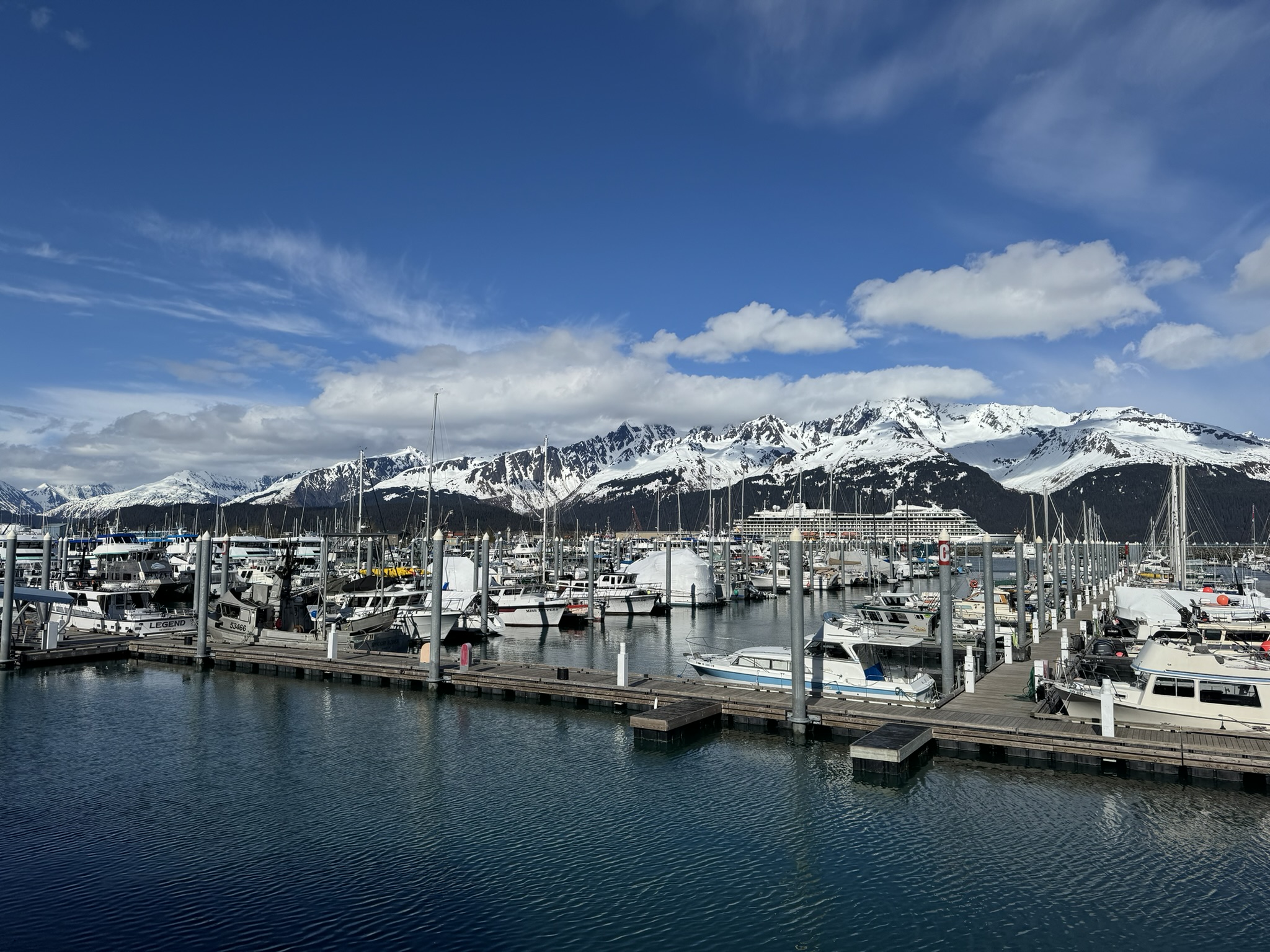
Leave a reply